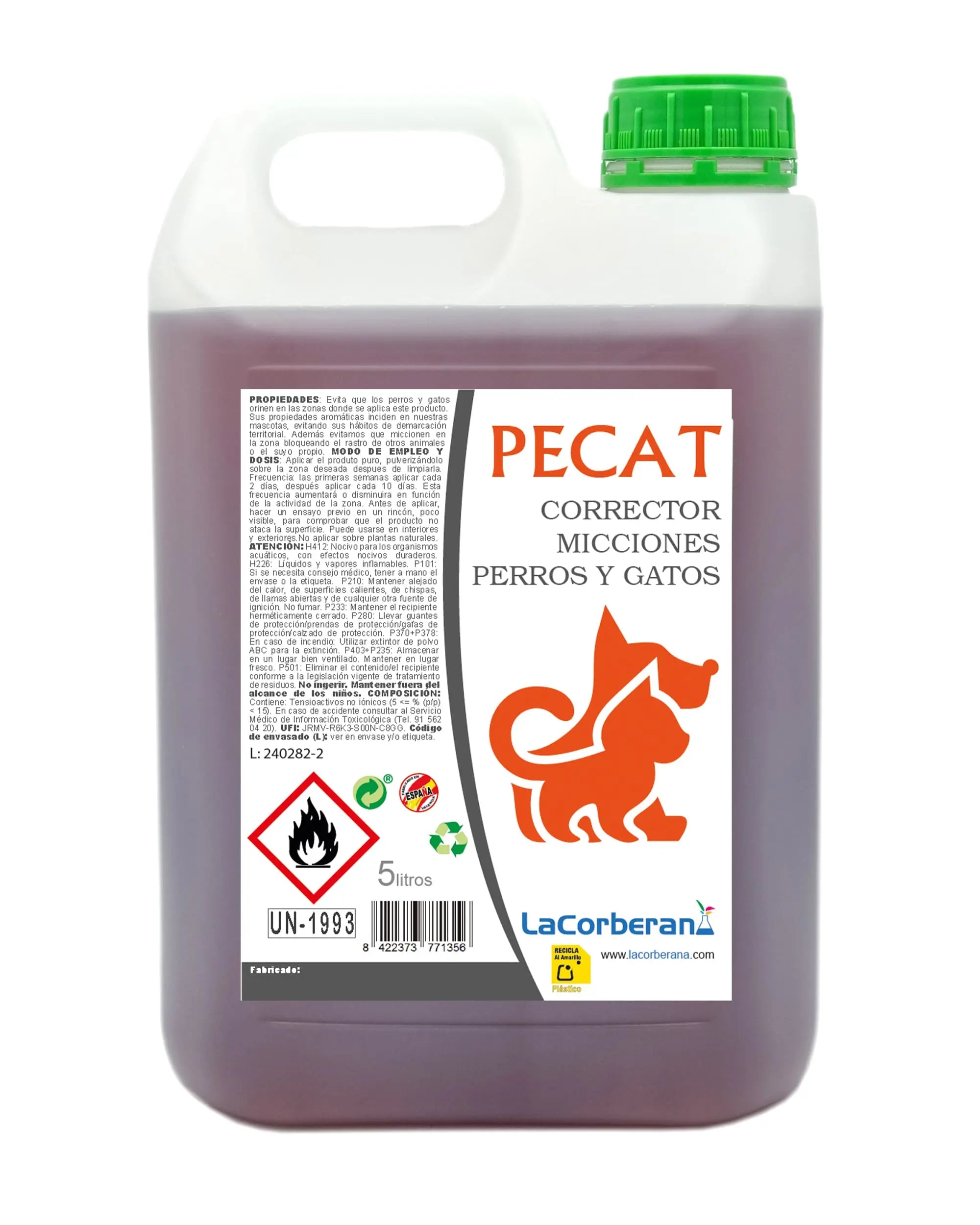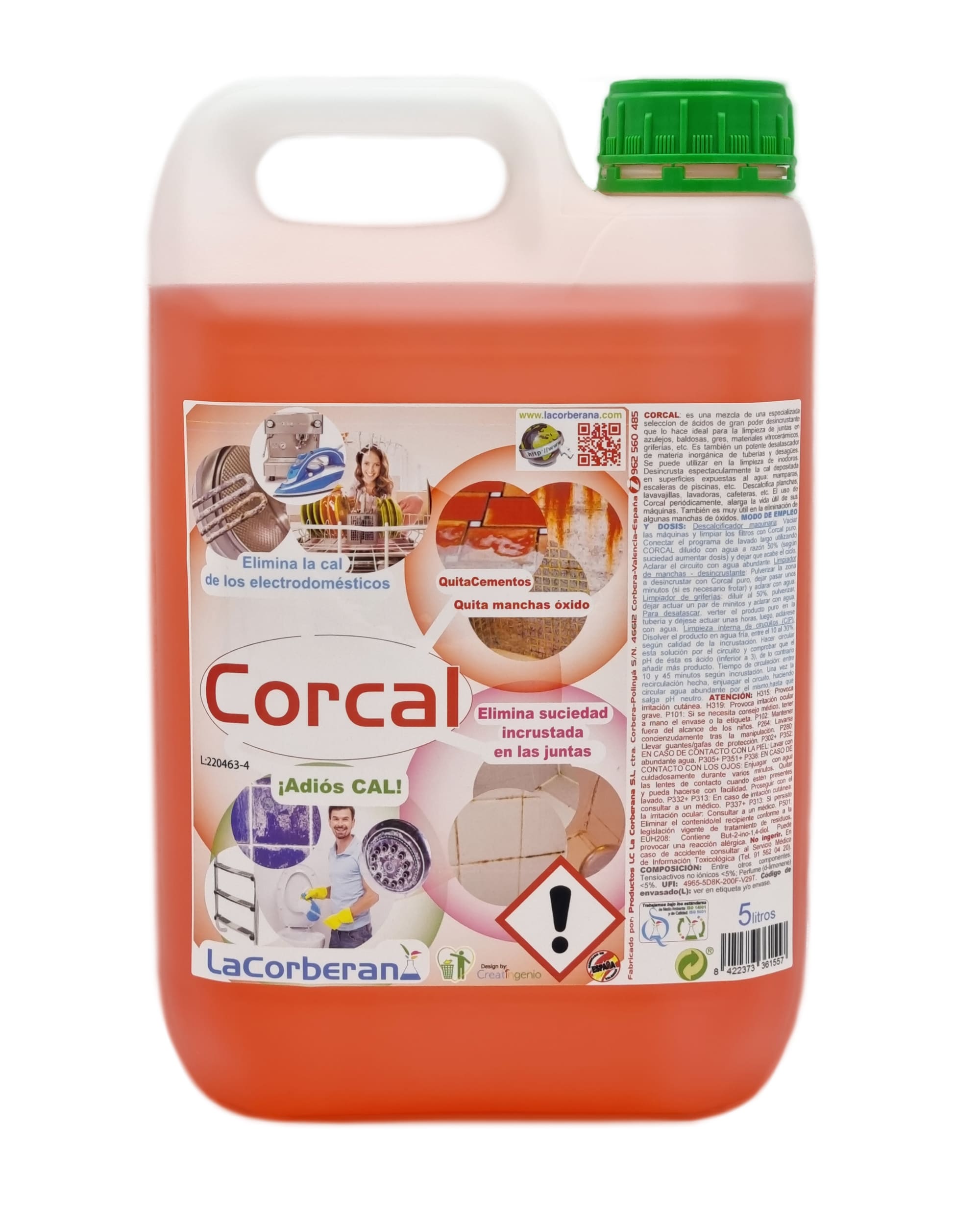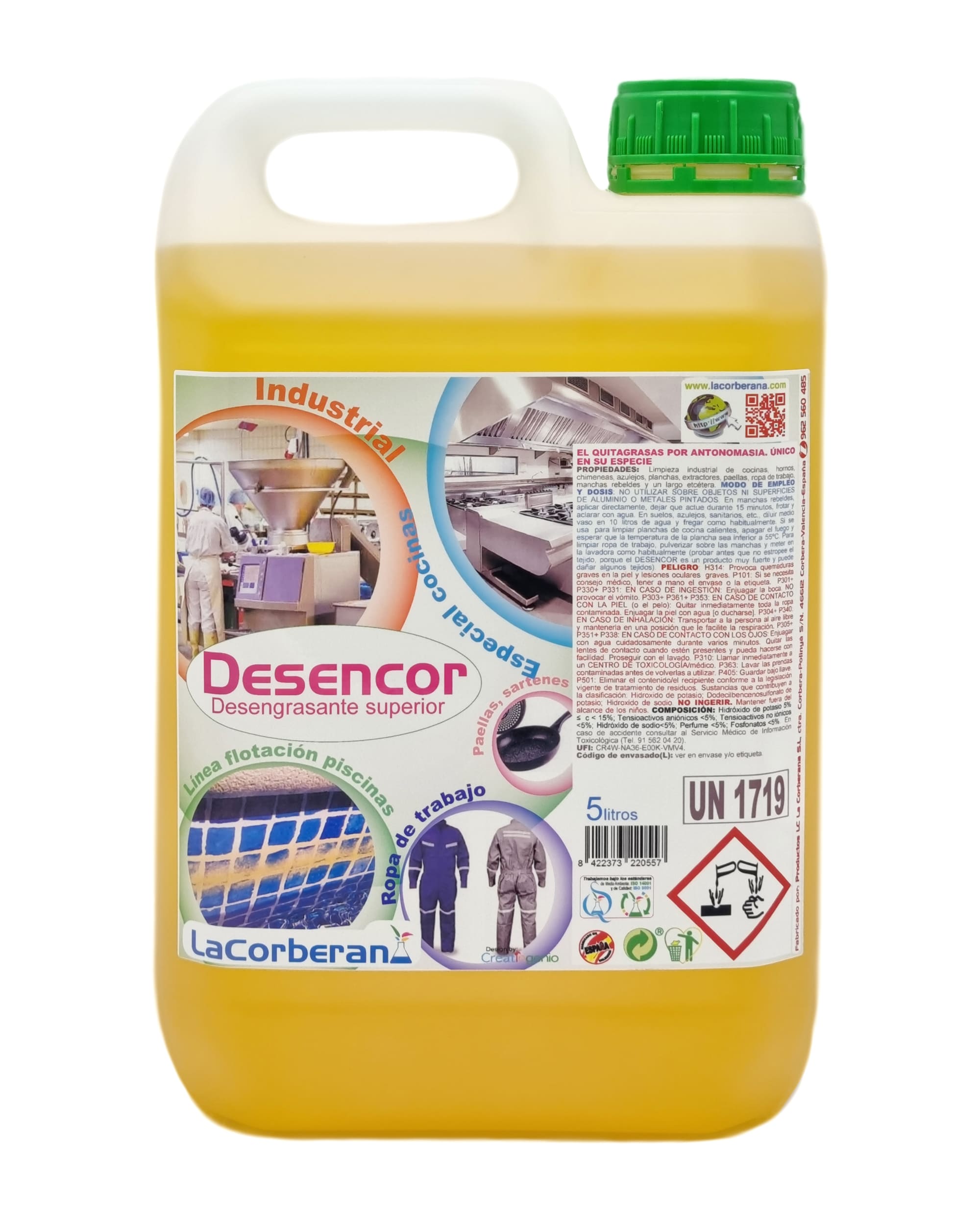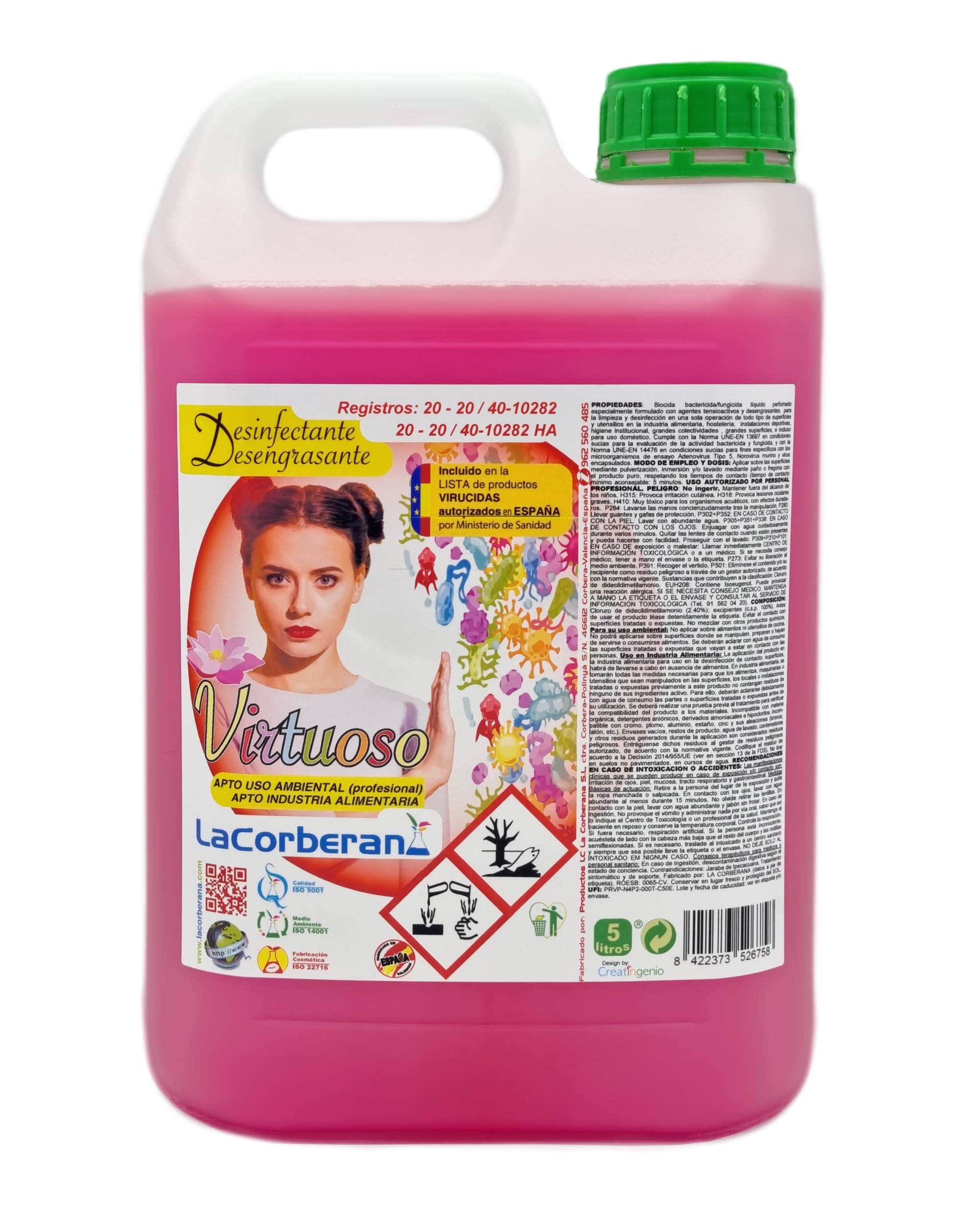Whether in restaurants, bars or cafes, having a good industrial coffee maker is crucial to offering the best coffee to customers.
The coffee maker is, without a doubt, one of the most used elements on a daily basis in bars, cafes or even restaurants, because coffee is probably the product most consumed in these types of establishments.
That's why the cleaning the industrial coffee machine of a bar is essential to guarantee quality coffee and maintain optimal operation of this machine that is so important in everyday life.
In this article, we will present you a complete guide on how to clean and descale your coffee maker , as well as maintenance tips to ensure its long-term performance.
Our approach focuses on professional cleaning, using specialized products that ensure effective and long-lasting results. Join us to discover the key steps to keep your industrial coffee machine spotless.
Steps to clean the coffee maker in your bar or cafeteria
Experts recommend that to get the most out of a coffee maker, you should perform a deep cleaning every four to six weeks , depending on the water quality in the area.
For To perform an optimal cleaning of the coffee maker , you can follow these steps:
Prior preparation
Before you begin, make sure you have all the necessary tools on hand. professional cleaning products necessary. These products are specially formulated to remove coffee residue and build-up efficiently and safely.
Also, make sure you have protective gloves and follow the safety instructions on the packaging.
Cleaning the filters and removable parts
Start with Remove the filters and removable parts from the coffee maker . Wash them carefully with hot water and a specialised detergent. Use a soft-bristle brush to remove any residue embedded in the filters. Rinse them thoroughly and let them dry completely before placing them back into the coffee maker.
Cleaning the steam arm
He The steam arm is an essential part that should always be kept clean . After each use, use a soft cloth to wipe it clean and remove any residue from milk or other liquids. This step helps to minimise the risk of dirt build-up with continued use.
Descaling the coffee maker
Mineral and sediment buildup in your coffee maker can affect the taste and performance of your coffee. That's why it's important to descale it regularly . To do this, use a professional descaler recommended by your coffee machine manufacturer. Follow the product instructions and run the descaling cycle. Make sure to rinse the coffee machine properly after the process to remove any descaler residue.
We will go into more depth later on. descaling the coffee machine.
Internal cleaning of the coffee maker
For To clean the inside of your coffee maker , prepare a specialized cleaning solution according to the manufacturer's directions. Pour the solution into the coffee maker's water reservoir and run a cleaning cycle.
This will help remove any coffee residue, oils, or sediment that may have built up in the internal plumbing. Run an additional cycle with clean water to ensure that completely remove any traces of the cleaning solution .
Checking the seals and rubbers
As part of a thorough cleaning, it is essential to check all the seals and rubbers on the coffee machine. Check that they are in good condition and if you find any that are worn or damaged, it is advisable to replace them. Seals and rubbers in good condition ensure a proper seal and prevent possible leaks.
Descaling the coffee machine at the bar
Limescale buildup is inevitable, depending on the type of water. Hard water has a higher mineral content (calcium, magnesium and limestone) than soft water.
These minerals can build up in your coffee maker and clog the ducts as well as affect the taste of your coffee.
The process of descaling a coffee machine is very simple:
- It takes a descaling product which must be mixed in water. The recommended proportion is 750 mm of both this product and water.
- It should be Let this mixture rest in a separate bowl for about 10 minutes.
- This mixture is insert into the coffee maker and turn on . The coffee maker system will pump the mixture through its interior until it is halfway up the coffee maker's reservoir.
- Turn off the coffee maker and let it rest. the mixture inside it.
- Turn it back on to release all the remaining mixture . Then repeat the same process but with clean water.
Maintenance for the industrial coffee machine
As with many issues, “prevention is better than cure”. The maintenance of a coffee machine involves the application of continuous cleaning processes. daily cleaning of the coffee maker It is essential to minimize the appearance of residues and impurities.
In addition to this daily cleaning, a thorough cleaning of both the inside and outside of the machine must be undertaken. Descaling is one of the priority cleaning tasks for the perfect maintenance of a coffee machine.
Obviously, the use and care of the coffee machine users will greatly impact the performance, condition and life expectancy of these machines.
Related content:
- How to deep clean a very dirty kitchen in 5 steps
- How to clean the deep fryer, both industrial and domestic
- How to clean the kitchen griddle
Importance of cleanliness in restaurants, bars and cafes.
Beyond cleaning the coffee maker, the Cleaning in restaurants , bars and cafes is vitally important to ensure customer satisfaction, maintain high standards of hygiene and safety, and ensure the success and reputation of the establishment.
Next, we will explore the importance of cleanliness in these dining environments:
- Health and Safety : Proper cleaning is critical to preventing the spread of bacteria, viruses, and other pathogens that could cause foodborne illness. Clean and sanitized spaces minimize contamination risks and protect the health of both customers and employees.
- Compliance : Restaurants, bars and cafes are subject to strict regulations and standards regarding hygiene and food safety. Complying with these standards is essential to avoid fines, temporary or permanent closures, and to preserve the reputation of the business.
- Customer experience : Cleanliness and order in the establishment have a direct impact on the perception and experience of customers. A clean, well-maintained environment free of unpleasant odors provides a feeling of comfort and confidence, which encourages customer satisfaction and loyalty to the establishment.
- Food Quality : Proper cleaning of food preparation areas, utensils, equipment and work surfaces is essential to ensure the quality and freshness of food served. Lack of cleaning can compromise the integrity and flavor of ingredients, as well as increase the risk of cross-contamination.
- Image and reputation : Impeccable cleanliness and maintenance are key elements in projecting a professional and high-quality image. Customers associate cleanliness with attention to detail, quality of service and the establishment's overall commitment. A positive reputation for cleanliness can attract new customers and generate positive recommendations.
- Work Environment : Cleanliness also impacts the work environment. A clean and orderly workplace contributes to employee comfort, efficiency, and safety. It also promotes a greater sense of pride and commitment to the establishment.
In The Corberana We have been designing, manufacturing and marketing chemical products for professional cleaning and disinfection for over 60 years. One of our specialties is products for professional cleaning in the HORECA sector.
Some examples of professional products that are very useful for cleaning restaurants and kitchens are:
Virtuoso Degreaser : Perfumed liquid bactericidal/yeast-killing biocide. Formulated with surfactants and degreasing agents. Cleaning and disinfection in a single operation of all types of surfaces . All types of surfaces and utensils in the food industry, hospitality, sports facilities, communities, large stores, and even for domestic use.
Superpin Professional Degreaser : Cleaner specifically formulated for general cleaning. Thanks to its surfactant and bio-alcohol content, it has great degreasing power and easy drying. It can be used for cleaning, both in industry and for cleaning kitchens and bathrooms.





